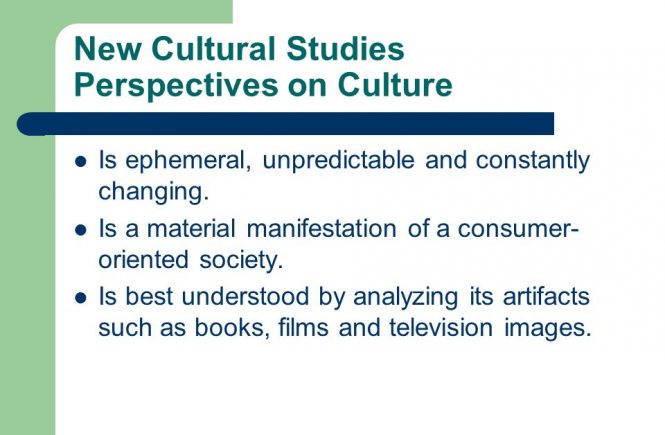While much of the debate on international communication post-1945 and during the Cold War emphasized a structural analysis of its role in political and economic power relationships, there has been a discernible shift in research emphasis in the 1990s in parallel with the ‘depoliciticization’ of politics towards the cultural dimensions of communication and media. The cultural analysis of communication also has a well established theoretical tradition to draw upon, from Gramsci’s theory of hegemony to the works of the critical theorists of the Frankfurt School. One group of scholars who adapted Gramsci’s notions of hegemony were based at the Centre for Contemporary Cultural Studies at the University of Birmingham in Britain. Led by the Caribbean-born scholar Stuart Hall, ‘the Birmingham School’, as it came to be known in the 1970s did pioneering work on exploring the textual analysis of media, especially television, and ethnographic research. Particularly influential was Hall’s model […]
The Public Sphere – International Communication
A natural heir to the critical theorists, the German sociologist Jiirgen Habermas (born 1929) also lamented the standardization, massification and atomization of the public. Habermas developed the concept of the public sphere in one of his earliest books, though it was 27 years before it appeared in English translation as The Structural Transformation of the Public Sphere: “An Inquiry into a Category of Bourgeois Society, in 1989. He defined the public sphere as an arena, independent of government (even if in receipt of state funds) and also enjoying autonomy from partisan economic forces, which is dedicated to rational debate (i.e. to debate and discussion which is not ‘interests’, ‘disguised’ or ‘manipulated’) and which is both accessible to entry and open to inspection by the citizenry. It is here, in this public sphere, that public opinion is formed.” (quoted in Holub, 1991: 2-8) Habermas argued that the ‘bourgeois public sphere’ emerged […]
Critical Theory – International Communication
Among the substantial body of research undertaken by the Frankfurt School theorists, the concept of the ‘culture industry’, first used by Adorno and Horkheimer in a book entitled Dialectic of Enlightenment written in 1944 and published in 1947, has received the widest international attention. Identified with the staff of the Institute for Social Research, founded in 1923 and affiliated with the University of Frankfurt, its key members included Max Horkheimer (1895-1973), Theodor Adorno (1903-69) and Herbert Marcuse (1898-1979). Analysing the industrial production of cultural goods – films, radio programmes, music and magazines, etc. – as a global movement, they argued that in capitalist societies the trend was towards producing culture as a commodity (Adorno, 1991). Adorno and Horkheimer believed that cultural products manifested the same kind of management practices, technological rationality and organizational schemes as the mass-produced industrial goods such as cars. This ‘assembly-line character’, they argued, could be observed […]
Hegemony – International Communication
By arguing that the propaganda model succeeds because there is no significant overt coercion from the state, Herman and Chomsky, in some ways, were following the European analyses of the role of ideology and state power in a capitalist society, articulated by, among others, the French Marxist Louis Althusser who called the media ‘ideological state apparatus’ (1971). Another major influence on critical theorists as well as on cultural critics in the study of ideology is the writings of Italian Marxist Antonio Gramsci (1891-1937). The impact of the ideas of Gramsci, who died in prison under the Fascist regime, has been widespread in critical studies of international communication. However, it was not until the translation into English of his most famous work, Selections from the Prison Notebooks, in 1971, that Gramsci’s ideas became a major influence in the Anglo-Saxon world. Gramsci’s conception of hegemony is rooted in the notion that the […]
Structural Imperialism
Galtung argues that the world consists of developed ‘centre’ states and underdeveloped ‘periphery’ states. In turn, each centre and periphery state possesses a ‘core’ – a highly developed area – and a less developed ‘periphery’. He defines structural imperialism as a ‘sophisticated type of dominance relation which cuts across nations basing itself on a bridgehead which the centre of the centre nation establishes in the centre of the periphery nation for the joint benefit of both’. For Galtung, there is a harmony of interest between the core of the centre nation and the centre in the periphery nation; less harmony of interest within the periphery nation than within the centre nation and a disharmony of interest between the periphery of the centre nation and the periphery of the periphery nation (Galtung, 1971: 83). In other words, there exists in the countries of the South a dominant elite whose interests coincide […]
Dependency Theory
Dependency theory emerged in Latin America in the late 1960s and 1970s, partly as a consequence of the political situation in the continent, with increasing US support for right-wing authoritarian governments, and partly with the realization among the educated elite that the developmentalist approach to international communication had failed to deliver. The establishment, in 1976, in Mexico City of the Instituto Latinamericano de Estudios (ILET), whose principal research interest was the study of transnational media business, gave an impetus to a critique of the ‘modernization’ thesis, documenting its negative consequences in the continent. The impact of ILET was also evident in international policy debates about NWICO, particularly through the work of Juan Somavia, a member of the MacBride Commission. Though grounded in the neo-Marxist political-economy approach (Baran, 1957; Gunder Frank, 1969; Amin 1976), dependency theorists aimed to provide an alternative framework to analyse international communication. Central to dependency theory was […]
